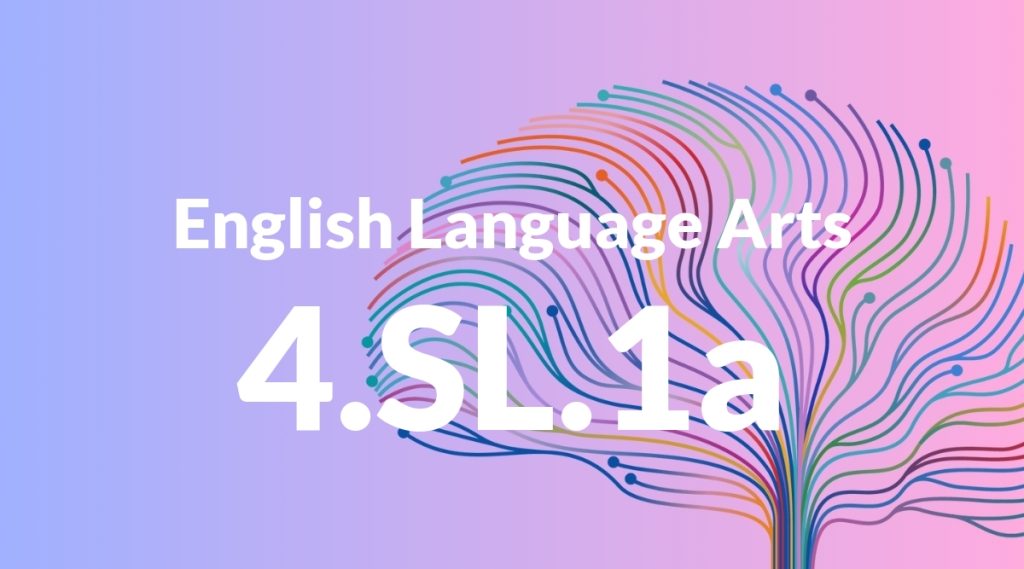Standard: 4.SL.1a – Come to discussions prepared, having read or studied required material; explicitly draw on that preparation and other information known about the topic to explore ideas under discussion.
Grade level: Grade 4
Subject: English Language Arts
Domain: Speaking & Listening
Teacher Overview
This standard emphasizes the importance of preparation for discussions. By coming prepared, students can contribute more meaningfully and explore ideas more deeply, fostering a richer learning environment. Students should be able to read and comprehend grade-level texts, summarize key points, and understand basic discussion protocols.
Mastering this standard will prepare students for more advanced discussions, enhancing their critical thinking and collaborative skills.
Common Misconception 1
Some students may think that participation in discussions does not require preparation. This is incorrect because unprepared students are less likely to contribute meaningfully.
Intervention 1
Teachers can use preparation checklists and require students to submit discussion notes beforehand.
Common Misconception 2
Another misconception is that students can rely entirely on prior knowledge without engaging with new material. This limits the depth and breadth of the discussion.
Intervention 2
Teachers should emphasize the importance of integrating new information and provide structured note-taking templates to help students organize their thoughts.
Prerequisite Knowledge
Students should have basic reading comprehension skills and be able to summarize text. They should also be familiar with basic discussion rules and etiquette.
Subsequent Knowledge
After mastering this standard, students will be able to engage in more complex discussions, critically evaluate different viewpoints, and provide constructive feedback.
Instructional Activities
- Create a discussion preparation checklist
- Group reading and note-taking sessions
- Role-playing different viewpoints in a debate
- Peer review of discussion notes
- Simulated classroom discussions on current events




